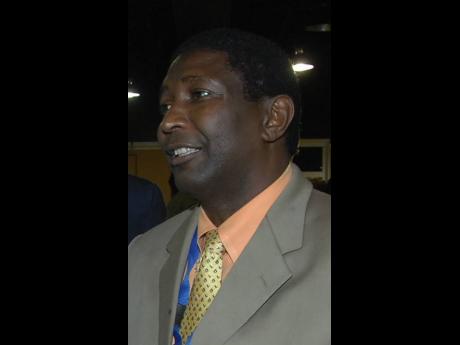Florida legislature targets immigrants, allies
Jamaican community leaders in Florida are raising the alarm about an immigration bill that was passed in the Sunshine State last Friday, pointing out that it will have a “chilling” effect on immigrants, legal and non-legal alike. Democrats have...
Jamaican community leaders in Florida are raising the alarm about an immigration bill that was passed in the Sunshine State last Friday, pointing out that it will have a “chilling” effect on immigrants, legal and non-legal alike.
Democrats have argued that the bill could lead to racial profiling, arguing that immigration laws are the purview of the federal government, not the state. But Republican supporters say it is aimed at forcing the federal government to address an “invasion” of migrants into the country.
The bill, which includes a number of provisions requested by Republican Governor Ron DeSantis, bars Florida local governments from spending taxpayer dollars on identification cards for people who cannot provide proof of citizenship.
It also invalidates a driver’s licence issued by another state to someone who cannot prove their citizenship; requires hospitals that accept Medicaid to include a question on intake forms about the patient’s citizenship status; removes a provision previously signed into law by former Governor Rick Scott that allows undocumented law school graduates admission to The Florida Bar; increases penalties for human trafficking-related offences; and requires anyone in the custody of law enforcement who is subject to a US Immigration and Customs Enforcement immigration retainer to submit a DNA sample to a statewide database.
The bill also prohibits counties and municipalities from providing funds to any person, entity, or organisation to issue identification documents to an individual who does not provide proof of lawful presence in the United States.
The bill also increases sanctions against businesses that hire undocumented immigrants, allow state law-enforcement officials to conduct random audits of businesses’ compliance with the law, and increase penalties for human smuggling. It also increases the maximum fine for a first violation of specified provisions relating to employing, hiring, recruiting, or referring undocumented immigrants for private or public employment.
One of the bill’s more contentious provisions is to require businesses with 25 or more workers to use the federal E-Verify system to check the immigration status of employees.
Atmosphere of fear
Jamaican immigration attorney Michelle Fanger, who is based in Jacksonville, said the measure will drive people underground and create an atmosphere of fear.
“As proposed, you cannot harbour anyone who is out of status and you will be subjected to fine and possible deportation,” she told The Gleaner last week ahead of its passing.
She noted that it would also prevent undocumented immigrants from seeking medical treatment.
“It means that we will have many sick people unable to seek medical help, and this could result in outbreaks of diseases that could be easily treated,” said Fanger.
She said that undocumented people already working would now fear going to work, noting that this could affect the state’s agricultural sector.
Dale Holness, the Jamaica-born former mayor of Broward County, also decried the measure, saying that what it is aimed at doing is giving Republicans a chance to win elections.
He told The Gleaner that the late George Wallace “tried the same tactics and it backfired, so I am at a loss to understand why the DeSantis government would be attempting this in this day and age”.
He said that the measure will have a chilling effect on legal and illegal immigrants and drive people underground at a time when progress is being made to try and bring people out of the shadows.
Holness noted that the measures will not only hurt immigrants, but the entire population.
“They are being shortsighted, and I believe that it will be challenged in court and overturned,” he said. “What they are seeking to do is make monsters out of immigrants and create a climate of fear among the white population.”
He noted that community-based organisations in Florida, which issue certain IDs to seniors and people coming out of prison and are seeking to restore their identities, could find funding cut off under the bill.
Corey Shearer, director of Florida’s Community Partnership Outreach, said that the measure is already having a chilling effect.
“It is mean and isolationist. It is trying to play to the fears of the white section of the population and threatens the progress that is being made,” he told The Gleaner.
Shearer, who is the son of the late Jamaica-born South Florida activist Jasmin Barnaby, said that community leaders must make people aware of such bills and push back against these types of measures.
A similar bill for the House, which is almost identical to the one approved by the Senate, could be on the floor for a vote as soon as this week.
If approved, it goes to DeSantis, and once he signs it, the law would become effective on July 1.

